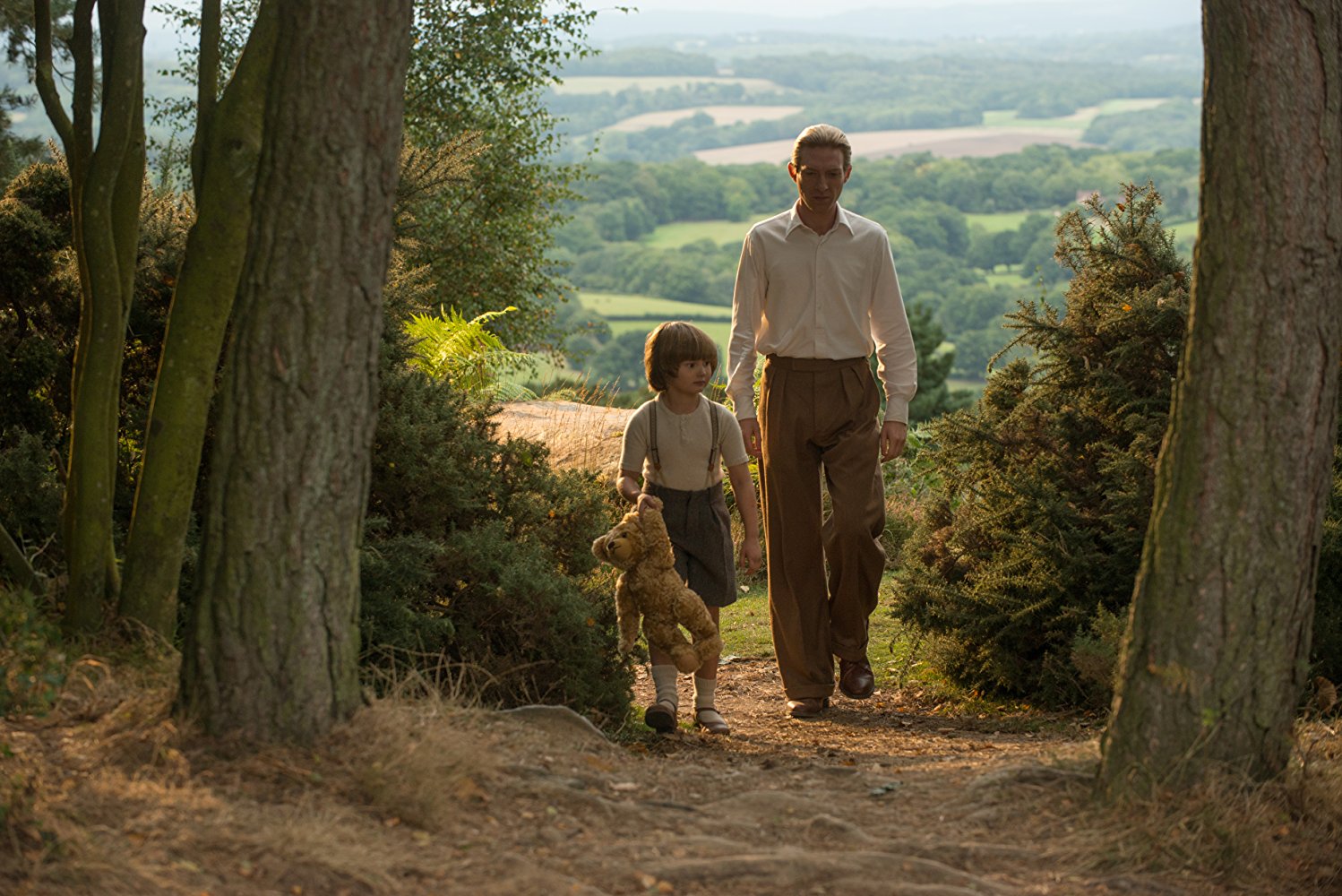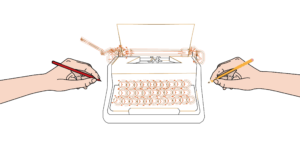Goodbye Christopher Robin tells the story of A.A. Milne (Domhnall Gleeson), the former playwright and creator of Winnie the Pooh. Going into the movie, one may think that this subject matter may lead to an entirely light-hearted and carefree cinematic experience. After all, what could be more wholesome than Winnie the Pooh?
This expectation is quickly subverted within the first minute of the film with a mildly graphic combat sequence of Milne fighting in World War I. From these first moments, it is evident that the story being told is about much more than the creation of a fictional teddy bear.
The movie uses this dramatic sequence as a springboard to introduce the first of the film’s two major themes: the effects of the cruelty of war. Milne, who is portrayed by the charismatic Domhnall Gleeson, is affectionately referred to as “Blue” by those closest to him. Blue is deeply affected by his time in war and experiences traumatic flashbacks on a daily basis. These flashbacks eventually push Blue to move his wife and young son away from the deeply triggering London to the quiet countryside town of Sussex. In Blue’s mind, moving to Sussex will allow him to move out from underneath the shadow cast upon him by the war. He hopes that the quiet will allow him to gain perspective and write a book that speaks to the tragedy of war and secures World War I’s title as the “war to end all wars.” This desire to stop war in its tracks is directly related to the birth of his son Christopher Robin Milne (Will Tilston), who is referred to as “Billy Moon” by his family.
Aside from Blue and his wife’s tangible fear their son will grow up to be a casualty in the senseless and indiscriminate violence of war, Billy’s narrative takes a backseat throughout the film’s first act. He spends little time with his father and is primarily raised by his nanny Olive. It is not until the film’s second act that Billy moves into the forefront of the film’s narrative.
This second act is where Goodbye Christopher Robin suffers its greatest pitfall. While the beginning of the movie focuses largely on Blue and the effects of war, this section is a drastic change in both perspective and theme. The dark overtones of war that characterizes the beginning of the movie are quickly replaced by much lighter images of childhood. This shift is slightly jarring in the broader context of the film and occurs when Blue is left to take care of Billy on his own for a couple of weeks. Quickly, the images of war that are sprinkled throughout the beginning of the film give way to cheerful montages of Blue and Billy playing in the woods. By the end of the two weeks that Billy and Blue spend together, Blue has begun work on an illustrated book revolving around the imaginary world created by his son and the narrative focus of the film shifts almost entirely to Billy.
As Blue continues to write and the books surge in popularity, Billy becomes a cultural icon. His days are filled with press events where he is forced to dress up as he appears in his father’s books. However, although Christopher Robin is technically his given name it becomes an alias that encompasses Billy’s cultural persona, a persona with which Billy does not identify. However, the character of Christopher Robin and Billy’s personal identity are conflated by the public. Since the books are based off of Billy’s own imagination and experiences with his father, the content of the stories are deeply personal to him. However, with the popularity of the books, Billy’s private experiences, along with his identity, become public property. This transition from young and playful boy to sought after public figure dovetails into the film’s second major theme: the commoditization of personal experience, an extremely relevant topic in the age of social media.
Although the country as a whole uses the stories as a source of joy to move forward in the wake of the war, that joy comes at the cost of Billy’s childhood. While the audience does get to know Billy as a fully formed human being, the movie makes it glaringly obvious that to the public, he is and always will be the Christopher Robin from the book. This situation forces the audience to question the value of personal moments once they have been packaged and shared with others. This is something that is not often considered in a society in which daily sharing on social media seems ubiquitous. If anything, modern society places more value on experiences that have been shared. This movie forces the audience to reckon with the effects of this outlook. What bearing does this constant dispensation of personal experience have on the formation of our own identities? Are people seen as more than what they post or are they simply the sum of the parts they choose to share?
The movie ends up far removed from its starting point. There is an attempt to coalesce the themes of war and identity in the film’s final scenes, but it is largely unsuccessful. The gaping distance between the film’s two major themes prevent it from fully exploring either in the two hours allotted. While it offers a lot of questions, it fails to form a cohesive whole and present any answers. To a certain extent, this leaves the viewer with a sense of dissatisfaction.
However, this is not to say that Goodbye Christopher Robin is not an enjoyable film. What it lacks in thematic cohesion, it makes up for by being innately charming without creating a sense of inauthenticity or cheesiness. Despite its downfalls, Goodbye Christopher Robin is an extremely pleasant cinematic experience.






